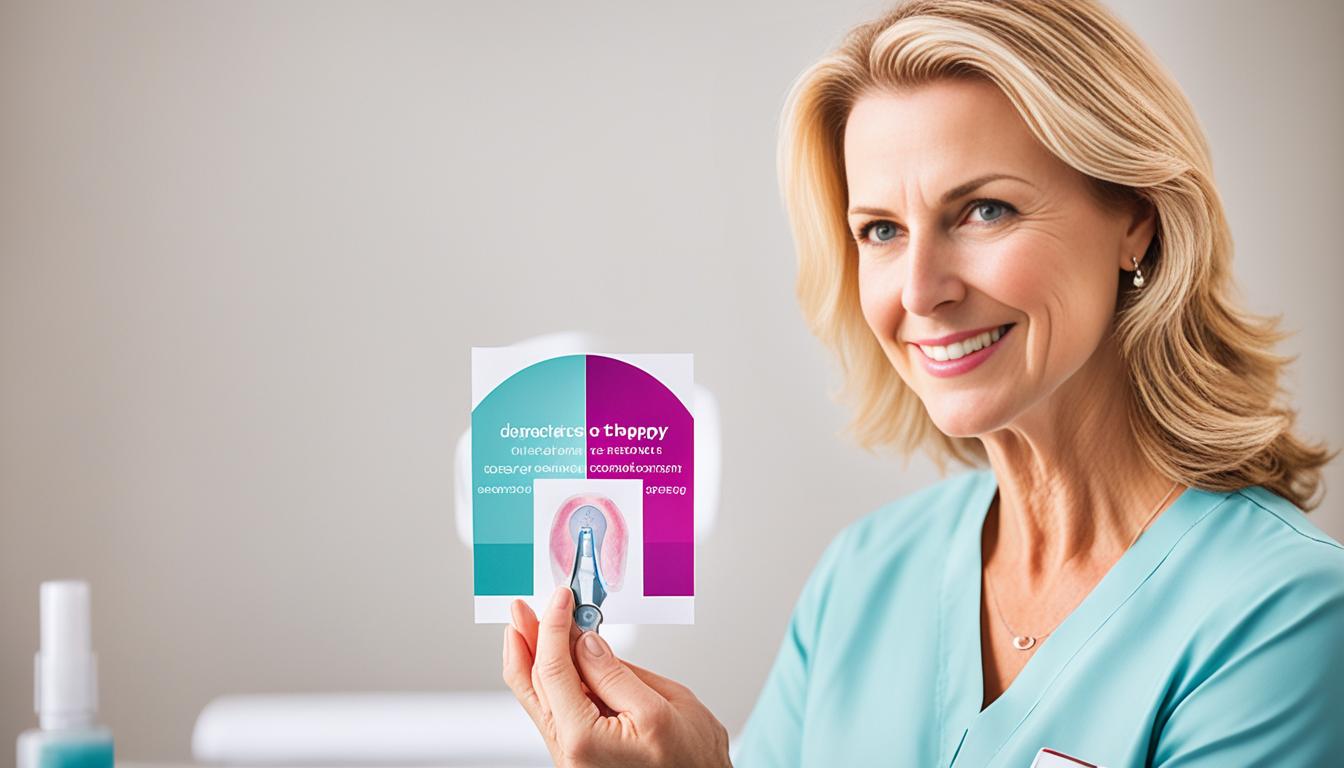Vulvar cancer is a kind of cancer on the outside of the female genital organs. It mostly happens in older adults but can strike at any age. Symptoms include itchiness, changes in the vulva’s texture, bumps or ulcers, bleeding not tied to menstruation, and tightness. The causes are unclear, but being older, exposed to HPV, smoking, a weak immune system, and some skin issues up the risk.
Diagnosing vulvar cancer takes a physical exam and biopsies. It is vital for those at a high risk to know the early signs and causes. Getting medical help early is key.
Key Takeaways:
- Vulvar cancer primarily affects older adults and can occur at any age.
- Common symptoms include itching, changes in vulvar texture, bumps or ulcers, non-menstrual bleeding, and vulvar tension.
- Risk factors for vulvar cancer include age, HPV exposure, smoking, weak immune system, and certain skin conditions.
- Diagnosis involves physical examination and tests such as biopsies.
- Awareness of early signs and causes is crucial for timely medical intervention.
Vulvar Cancer Treatment and Prevention
Treating vulvar cancer depends on factors like tumor type, stage, and the patient’s health. Surgery is often the first choice, removing the tumor and some healthy tissue. Sometimes, the entire vulva must be removed. This ensures all cancer cells are gone.
Radiation therapy is another choice. It uses high-energy X-rays to destroy cancer cells. It might happen before surgery to make tumors smaller. Or, it’s used after surgery to kill any remaining cancer cells and lower the risk of it coming back.
If the cancer has advanced, chemotherapy may be needed. This treatment uses drugs to kill cancer cells throughout the body. It’s good at controlling the disease but can have side effects. The decision to use it depends on the patient’s specific situation.
To stop vulvar cancer, get the HPV vaccine, since many cases are linked to HPV. Safe sex helps prevent spreading HPV and getting vulvar cancer. Regular checks like pelvic exams and Pap tests can find cancer early. Talk to a healthcare provider about the best screening schedule for you.
For those with vulvar cancer, support groups and counseling can really help. They offer emotional and mental support for patients and their families. These groups share stories and tips, making everyone feel stronger and more able to cope with the disease.
Comparison of Vulvar Cancer Treatment Options
| Treatment Option | Description |
|---|---|
| Surgical Removal | Removal of the tumor and surrounding healthy tissue to eliminate cancer cells. |
| Radiation Therapy | Use of high-energy X-rays or radiation to shrink tumors before surgery or destroy remaining cancer cells after surgery. |
| Chemotherapy | Systemic treatment involving drug therapy to kill cancer cells throughout the body. |
Stem Cell Therapy for Vulvar Cancer
Stem cell therapy is a new way to treat vulvar cancer. It uses stem cells to fix damaged tissues in the vulva. People who have lost tissue from surgery might find new hope in this approach. Early studies show positive results, suggesting it could be a helpful treatment for vulvar cancer.
More research is still necessary to confirm if stem cell therapy is safe and effective for vulvar cancer. Trials are looking into combining stem cells with other treatments. The goal is to boost how well treatments work and to help patients live better lives.
It’s key for vulvar cancer patients to stay in touch with their doctors about these advances. By keeping up with new research and joining clinical trials, they can help improve treatments. This could lead to better outcomes and options for managing vulvar cancer.

